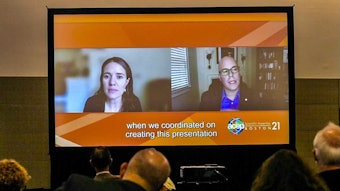5 Questions on Employment Contracts
Get answers to common questions related to EM employment contracts.

This article is reprinted with permission from ACEP Now. It was originally published in the August 2021 issue.
ACEP Now recently talked with Rade Vukmir, MD, JD, FACEP, Chair of the ACEP Medical-Legal Committee, and Scott Altman, MD, MPH, MBA, FACEP, a longtime emergency physician who has assisted hundreds of EM residents through the employment process, about some common questions related to EM employment contracts.
What’s the most significant change you’ve seen in EM employment contracts since the start of the pandemic?
Dr. Vukmir: The single most significant change in emergency physician personal service contracts in the post-COVID-19 era is the accentuation of the potential importance of the force majeure contract provision. In its literal legal translation, “the act of God” provision allows contracted parties to vary other significant contractual terms based on an unanticipated catastrophic event. … In addition, more practical aspects of standard emergency physician contractual language that assume greater importance in uncertain times include family leave provision, job, revenue, “unwind” provisions, and compensation guarantees. It is often more than just the pay rate.
Dr. Altman: The addition of force majeure clauses allows the employer, with little or no warning and no consequence, to reduce the physician’s pay or hours or even terminate the contract and let the physician go without prior notice. The physician could suddenly end up without a job, benefits (like health insurance), and even their malpractice tail. To counter this risk, physicians should request that notice be required, and that notice should preferably be at least equal to the early termination notice provision usually in physician employment agreements.
What advice do you have for handling restrictive covenants?
Dr. Altman: Restrictive covenants (exclusivity and noncompete) make sense for physicians whose patients might follow them if the physicians were to change hospitals. Patients do not call the emergency department to see who is working that shift, so emergency physicians are not in a position to “steal” patients. But lawyers like to standardize contracts, so they don’t separate “referral physicians” from what I call “institutional physicians”—like emergency medicine, anesthesia, pathology, and hospitalists.
My recommendation is to try to reason with the recruiter. Point out the misapplication of the principle that lies behind the restrictions. Plain and simple, emergency physicians don’t “steal” patients. Regarding exclusivity, remind them that, assuming you do your job well when you are on their clock, what you do on your own time should be none of their business. Or if they want to demand exclusivity, they should pay you an exclusivity fee to compensate you for the risk you are taking by not having a second job.
Dr. Vukmir: First, the emergency physician should review the covenant or noncompete (CNC) provision in their personal service contract while also inquiring about the presence of a provision in the facility contract. Here, specific financial terms of this provision are often discussed. Second, define the buyout number and try to eliminate it entirely if you were not truly “recruited” to the site. Third, if there were true recruitment expenditures, try to negotiate a more mutually agreeable cost that can be paid by a new employer. Lastly, consider negotiating a pre-separation buyout that you can fund independently to try to maintain your independent status.
Are noncompete clauses in employment contracts binding and enforceable?
Dr. Vukmir: In a general sense, they are typically enforceable as long as they are limited in scope, duration, and effect. The standard CNC language includes exclusion of specific “own occupation” economic activity for two years or less and performed within a 25-mile radius of the work site.
Subsequent legal interpretation and potential negotiation focus on the specificity of the occupation emergency medicine versus subspecialty practice. The duration of effect may be successfully negotiated to one year in some circumstances. The radius of operation has clear variation based on location of practice (urban, suburban, or rural) and the inherent density of health care facilities.
Another important consideration is the venue. There is a potential interface between labor law concepts that include the right-to-work states and noncompete contract agreements. The former is applicable to a company-union relationship, where exclusionary work restrictions cannot be imposed on the employee. The latter applies to the employer-employee relationship; work restrictions can be imposed. One legal theory is that these concepts may blend so that in a right-to-work state, if a contract is required to be signed by the employee, then potentially a CNC may indeed conflict with the right to work in an unencumbered fashion.
Equitable arguments related to health care availability tend to not be effective on an individual physician basis. However, group analysis or one with significant equity-of-care issues may prove a more persuasive argument against enforcement.
When a contract is presented as a “take it or leave it” offer, is that really true? Or is there still room to push back if you’re uncomfortable with certain aspects of the contract?
Dr. Altman: It really depends on how much they want you or how hard it is to find someone else. Either way, the answer will tell you a lot about the prospective employer and the way you can expect to be treated after you start work. If they treat you as an easily replaceable commodity before you sign, it will only be worse once they have you. Organizations often play the “it’s written by the lawyers, and they tell me it’s their standard contract” card.
If they verbally agree but refuse to make changes to the contract, be sure to write down what you have heard and get written confirmation that they have received it. Email is fine, but acknowledgement or agreement is even better. If they refuse to make changes, you have a business decision to make. Is the issue being discussed a deal breaker for you, or is the prospective employer, the job, or the location so compelling that it overrides your concern?
Dr. Vukmir: Every contract may be technically negotiable, but a logical strategy is required for a successful negotiation. Basic supply-and-demand principles apply. It’s harder to negotiate when applying for a highly sought-after position. Recognize that the employment contract is typically written for the business entity, by the business entity, and for the express benefit of the business entity. The potential employee often has less bargaining room, so set reasonable personal expectations. Before you start a discussion, make sure you are addressing this with a person who is actually authorized to make contract changes. Focus on a single point, or a small number of significant issues, that you would like potentially resolved in your favor. The quickest way to an unsuccessful contract negotiation is to present a significantly redlined version with an extensive contract term rewrite.
If you could get emergency physicians to do one thing when reviewing contracts (besides hiring a lawyer), what would it be?
Dr. Altman: Get the verbal agreements in writing. The questions I ask are, you will work where, when, how hard, for how much, with what resources, and who is watching your back? They may promise equal nights and weekends. They may commit to paying your malpractice tail. They may say they offer health insurance and a pension program. If it isn’t in writing, it wasn’t said.
If the relationship works out, the contact is beside the point. It will be long forgotten. If the relationship doesn’t work, what protections do you have? Read the contract assuming the worst, not the best. If the current leadership leaves, dies, or becomes disabled, their heirs may not be the nice people you are about to shake hands with.
Dr. Vukmir: Hiring an attorney for contract review is a good first step, but presenting a massively redlined version is unlikely to be successful. Ask for the attorney review to advise on all issues but to focus on significant adverse contract provisions.
Do your research, and utilize ACEP’s contract management resources. Talk to colleagues and listen to your counsel. Ideally, you can ask to speak with a current physician in the practice for their perspective. Make contingency plans for both favorable and unfavorable outcomes.











